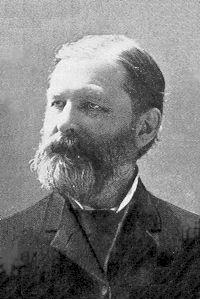A Quote by Hippocrates
And if this were so in all cases, the principle would be established, that sometimes conditions can be treated by things opposite to those from which they arose, and sometimes by things like to those from which they arose.
Related Quotes
The desire for story is very, very deep in human beings. We are the only creature in the world that does this; we are the only creature that tells stories, and sometimes those are true stories and sometimes those are made up stories. Then there are the larger stories, the grand narratives that we live in, which are things like nation and family and clan and so on. Those stories are considered to be treated reverentially. They need to be part of the way in which we conduct the discourse of our lives and to prevent people from doing something very damaging to human nature.
Divine Scripture is wont to frame, as it were, allurements for children from the things which are found in the creature; whereby, according to their measure, and as it were by steps, the affections of the weak may be moved to seek those things that are above, and to leave those things that are below. But the same Scripture rarely employs those things which are spoken properly of God, and are not found in any creature; as, for instance, that which was said to Moses, I am that I am; and, I Am has sent me to you."
Confusion conditions activity, which conditions consciousness, which conditions embodied personality, which conditions sensory experiences, which conditions impact, which conditions mood, which conditions craving, which conditions clinging, which conditions becoming, which conditions birth, which conditions aging and death.
There is a principle of human affairs that goes back millennia, which is that you don't look in the mirror. You can trace this principle back to the Bible. The designated intellectuals of that time are called prophets, which is a mistranslation of a Hebrew word, but they were basically intellectuals, giving geopolitical analysis, criticizing the moral practice of leadership, etc. Now, these people were not treated very nicely. There were other intellectuals who were treated nicely, namely those who centuries later came to be called false prophets. These were the flatterers of the court.
Of the first philosophers, then, most thought the principles which were of the nature of matter were the only principles of all things. That of which all things that are consist, the first from which they come to be, the last into which they are resolved....this they say is the element and this is the principle of things.... yet they do not all agree as to the number and the nature of these principle is water.
Logic, too, also rests on assumptions that do not correspond to anything in the real world, e.g., on the assumption that there areequal things, that the same thing is identical at different points in time: but this science arose as a result of the opposite belief (that such things actually exist in the real world). And it is the same with mathematics, which would certainly never have arisen if it had been understood from the beginning that there is no such thing in nature as a perfectly straight line, a true circle, and absolute measure.
Sometimes you walk into things, that, if you were paying attention, vibrationally, you would know right from the beginning that it wasn't what you are wanting. In most cases, your initial knee-jerk response was a pretty good indicator of how it was going to turn out later. The things that give most of you the most grief are those things that initially you had a feeling response about, but then you talked yourself out of it for one reason or another.
Whence arose all the horrid assassinations of whole nations of men, women, and infants, with which the Bible is filled; and the bloody persecutions, and tortures unto death, and religiosu wars, that since that time have laid Europe in blood and ashes; whence arose they, but from this impious thing called religion, and this monstrous belief that God has spoken to man?
Or if the hypothesis were offered us of a world in which Messrs. Fourier's and Bellamy's and Morris's Utopias should all be outdone, and millions kept permanently happy on the one simple condition that a certain lost soul on the far-off edge of things should lead a life of lonely torment, what except a specifical and independent sort of emotion can it be which would make us immediately feel, even though an impulse arose within us to clutch at the happiness so offered, how hideous a thing would be its enjoyment when deliberately accepted as the fruit of such a bargain?





































